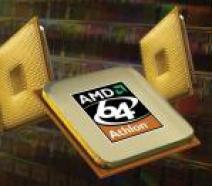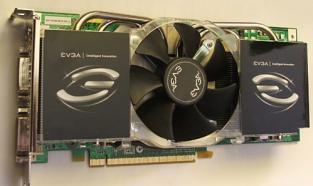OOPS! You forgot to upload swfobject.js ! You must upload this file for your form to work.
PC makers have to change business model or to leave
![]()
|
xtreview is your : Video card - cpu - memory - Hard drive - power supply unit source |
|
|||
|
|
||||
 Recommended : Free unlimited image hosting with image editor
Recommended : Free unlimited image hosting with image editor
|
POSTER: computer news || PC MAKERS HAVE TO CHANGE BUSINESS MODEL OR TO LEAVE |
DATE:2016-09-28 |
|
|
Year after year, the PC market is shrinking in volume. In its report, not only Gartner experts warn about the dangers of following the traditional model of selling PCs - relying on the regular updating of hardware and lower prices, but also offer to consider four other business model . The first model - a classic. It is not intended to change and therefore the most risky. Brands continue to sell computers, update the range and reduce the price to attract buyers. In this way, the consolidation is inevitable, and someone will have to go out of business. The second option - is the sale of non-traditional methods of traditional PCs. Computers to be given away free to users on a subscription basis services. Revenue in the pocket of system manufacturers will go to the expense of providing "digital" services or advertising. Something like 10 years ago, Microsoft offered (FlexGo project Transmeta platform), and five years ago partially implemented, Amazon, Kindle e-book offering a discount for viewing ads.  A third option to change the business model - is the development of new products while maintaining the traditional sales model. For example, the computers need to get new opportunities - a variety of sensors and to be prepared to integrate into the "smart" home and to work more closely in the implementation of the human environment. The fourth model is the most aggressive. PC makers offer new products and earn revenue from the provision of digital services from services and software developers. As an example, analysts led home robots, which, including the user will dispose of a budget, buying groceries or spending money for current expenses - utilities and more. For some reason it seems that computer manufacturers will follow the path of least resistance - no one will change, and the weakest will leave the market, after dropping the Chinese business. Related Products : | ||
|
|
||
|
xtreview is your : Video card - cpu - memory - Hard drive - power supply unit source |
|
|
|
|
||
|
Xtreview Support  N-Post:xxxx Xtreview Support        |
PC MAKERS HAVE TO CHANGE BUSINESS MODEL OR TO LEAVE |
| Please Feel Free to write any Comment; Thanks  |
Chinese chipmakers are attempting to fortune in production on FD-SOI wafers (2017-02-19)
Automakers expect easing in US law for the expansion of testing robocars (2017-02-14)
Chinese smartphone makers may give preference to local suppliers of AMOLED-display (2017-01-24)
MediaTek is going to offer complete solutions to automakers (2016-11-29)
German automakers promise to offer electric cars for the price of cars with internal combustion engines (2016-09-30)
PC makers have to change business model or to leave (2016-09-28)
German automakers are ready to use the on-board system for the collection of information (2016-09-26)
Lyft looking for investors from among automakers (2016-06-28)
PC makers already get Bristol Ridge processors in Socket AM4 (2016-06-02)
Automakers are willing to pay for the development of scientists autopilot (2016-03-17)
For cartographic heritage Nokia automakers pull new arms (2016-03-07)
Process technology with 10 nm becomes the center of chipmakers finance (2016-01-24)
Google announced an alliance with automakers this year (2016-01-13)
Notebook makers do not lose hope to get the processors at lower prices (2015-11-30)
Automakers are adopting readily augmented reality (2015-11-21)
The third quarter did not justify chipmakers hopes (2015-09-26)
In July, motherboard makers do not have time to feel the market recovery (2015-08-11)
Automakers are not in hurry to share with Google and Apple data about drivers habits (2015-07-13)
Three German automakers remains the leading candidate to buy Nokia map assets (2015-07-09)
To please the automakers, NVIDIA will have a lot to learn (2015-05-15)
![]()
To figure out your best laptops .Welcome to XTreview.com. Here u can find a complete computer hardware guide and laptop rating .More than 500 reviews of modern PC to understand the basic architecture


7600gt review
7600gt is the middle card range.
We already benchmarked this video card and found that ...

 geforce 8800gtx and 8800gts
geforce 8800gtx and 8800gts  Xtreview software download Section
Xtreview software download Section  AMD TURION 64 X2 REVIEW
AMD TURION 64 X2 REVIEW  INTEL PENTIUM D 920 , INTEL PENTIUM D 930
INTEL PENTIUM D 920 , INTEL PENTIUM D 930  6800XT REVIEW
6800XT REVIEW  computer hardware REVIEW
computer hardware REVIEW  INTEL CONROE CORE DUO 2 REVIEW VS AMD AM2
INTEL CONROE CORE DUO 2 REVIEW VS AMD AM2  INTEL PENTIUM D 805 INTEL D805
INTEL PENTIUM D 805 INTEL D805  Free desktop wallpaper
Free desktop wallpaper  online fighting game
online fighting game  Xtreview price comparison center
Xtreview price comparison center Lastest 15 Reviews


Rss Feeds
Last News
- The new version of GPU-Z finally kills the belief in the miracle of Vega transformation
- The motherboard manufacturer confirms the characteristics of the processors Coffee Lake
- We are looking for copper coolers on NVIDIA Volta computing accelerators
- Unofficially about Intels plans to release 300-series chipset
- The Japanese representation of AMD offered monetary compensation to the first buyers of Ryzen Threadripper
- This year will not be released more than 45 million motherboards
- TSMC denies the presentation of charges from the antimonopoly authorities
- Radeon RX Vega 64 at frequencies 1802-1000 MHz updated the record GPUPI 1B
- AMD itself would like to believe that mobile processors Ryzen have already been released
- AMD Vega 20 will find application in accelerating computations
- Pre-orders for new iPhone start next week
- Radeon RX Vega 57, 58 and 59: the wonders of transformation
- ASML starts commercial delivery of EUV-scanners
- The older Skylake processors with a free multiplier are removed from production
- Meizu will release Android-smartphone based on Helio P40
- AMD Bristol Ridge processors are also available in American retail
- The fate of Toshiba Memory can be solved to the next environment
- duo GeForce GTX 1080 Ti in GPUPI 1B at frequencies of 2480-10320 MHz
- New Kentsfield overclocking record up to 5204 MHz
- Lenovo released Android-smartphone K8

HALO 3 HALO 3 - Final Fight!

PREY Prey is something you don t often see anymore: a totally unigue shooter experience.

computer news computer parts review Old Forum Downloads New Forum Login Join Articles terms Hardware blog Sitemap Get Freebies


